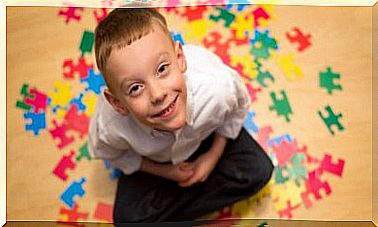Sport In Children: Teach Them To Enjoy

Many parents dream of making great athletes out of their children; however, what we really need to aim for is to get them to enjoy sport. To achieve this goal, sport in children must be cultivated from infancy. Respecting their skills and abilities at all times so that they can feel pleased.
The key to teaching them to enjoy sport is to set a good example, be understanding and always try to provide alternatives. In the face of “mom / dad I don’t like sports”, we must know how to respond with enthusiasm and a good footing. The children will appreciate it.
Exercise can be fun
At an early age, sport should be an enjoyment. Beyond a discipline, the child must feel that it is a game. This is the best way for you to stick with it.
From 6 years of age is when children begin to develop physical skills. They are able to pay attention for much longer and to follow the rules correctly. Also, they know how to wait their turn.
The recommended age to join a team is 11 years old. At this age, the concept of competence is better understood. Children recognize the opponent’s posture. They understand that sometimes you win and sometimes you lose.
Sports in children is it mandatory?
The benefits of sport in children are not only focused on physical condition. Sport alone is capable of promoting many human values, such as:
- Patience.
- Humility.
- The tolerance.
- The Solidarity.
- The cooperation.
- The perseverance.
- Team work.

Sport also helps to strengthen the personality of young children. It raises their self-esteem and gives them greater security to relate to others. In most cases, they help promote your leadership skills.
Additionally, sport is a good option for the little ones to burn energy. And it is that e l children sport generates motor and psychological skills. This is easily evident with the naked eye.
Of course, it is not always about pointing the child to a discipline and forcing them to perform in a physical activity. Let’s remember that practicing unstructured games are also a way of doing sports. For example:
- Cycle.
- Jump the rope.
- Playing ball (for example, the game of hot potato, “burned”, etc.)
- Play hide and seek.
- Play speed races.
Another undoubted benefit of sport in children is the ability to concentrate. Condition that favors them during academic evaluations. Likewise, practicing a sport benefits sleep and rest.
Recommendations to promote sport in children
First of all, parents should look at the abilities of their children. Like listening to their interests. Not all youth are athletic or competitive in all sports. Parental support is essential in the selection of discipline. Children do not always discover it the first time.
To generate empathy between the child and a discipline it is important that they like it. The child should be allowed to try various options until he finds the one he prefers. Above all, sport should be fun.
High competition or team sports are not always the best option. When it comes to instilling new habits, individual disciplines offer more success. Swimming, cycling, gymnastics are some of them.
Maturity is related to the ability to accept defeat. As the child grows, responsibilities are included. So it is advisable to wait a while to offer them compete.

Parental involvement is important for the motivation of the child. Young people who have the backing and support of their parents, stay longer in sport.
Each child has their space
Many parents want children to enroll in the discipline that they practiced as young or the one that inspires them the most when it comes to watching it on television. Although this can be a good example to follow in some cases, it does not necessarily have to inspire our children as it did with us.
Above all, children must be listened to. In the same way that sport brings benefits, it can also be a source of stress for children.
Remember that when feeling pressure, children become stressed and this can cause tantrums, frustration, depression and even abandonment of the activity and predisposition towards it. In these cases, parents must be vigilant. Talking about their frustrations helps young people channel their distress.
Another condition that generates rejection of sport is stage fright or fear of the public. This can be the case for both young introverts and extroverts. The important thing here is to know how to guide our children, little by little and provide them with tools so that they can overcome their fears.
It should be borne in mind that some children do very well in practice, but flee from competitions due to stage fright.
Healthy and fun alternatives
For those children who may find it difficult to get close to sports and enjoy themselves, they can be helped through the following activities, since most of them are very attractive and pleasant. Remember that sport is not just playing soccer or other ball games.
- Yoga.
- Ballet.
- Swimming.
- Rhythmic dance.
- Artistic gymnastics and / or rhythmic gymnastics.
Being close to the coach is recommended
A good relationship with the coach or coach can help detect any inconvenience in time. In addition, the coach is the right person to approve the skills of the participants.
Finally, parents should get involved in their children’s sports and games. Attend meetings and celebrate achievements. And also recognize the efforts despite the result of the scoreboard.










